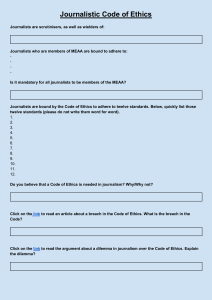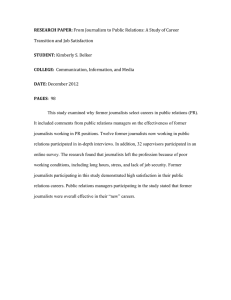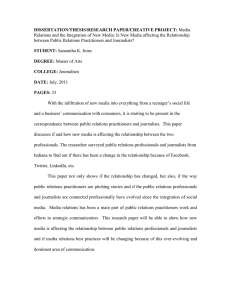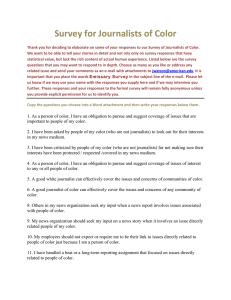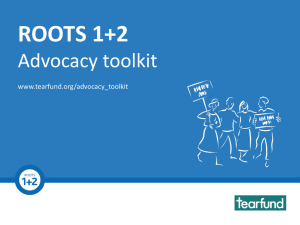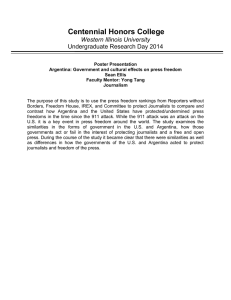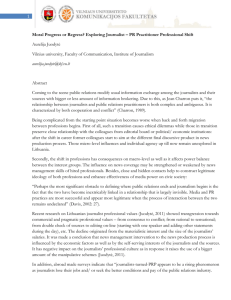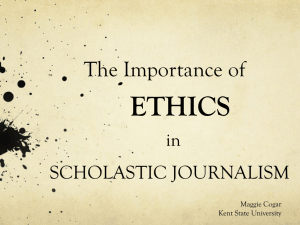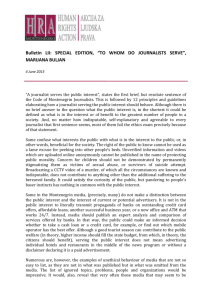Q&A - Media Speak
advertisement
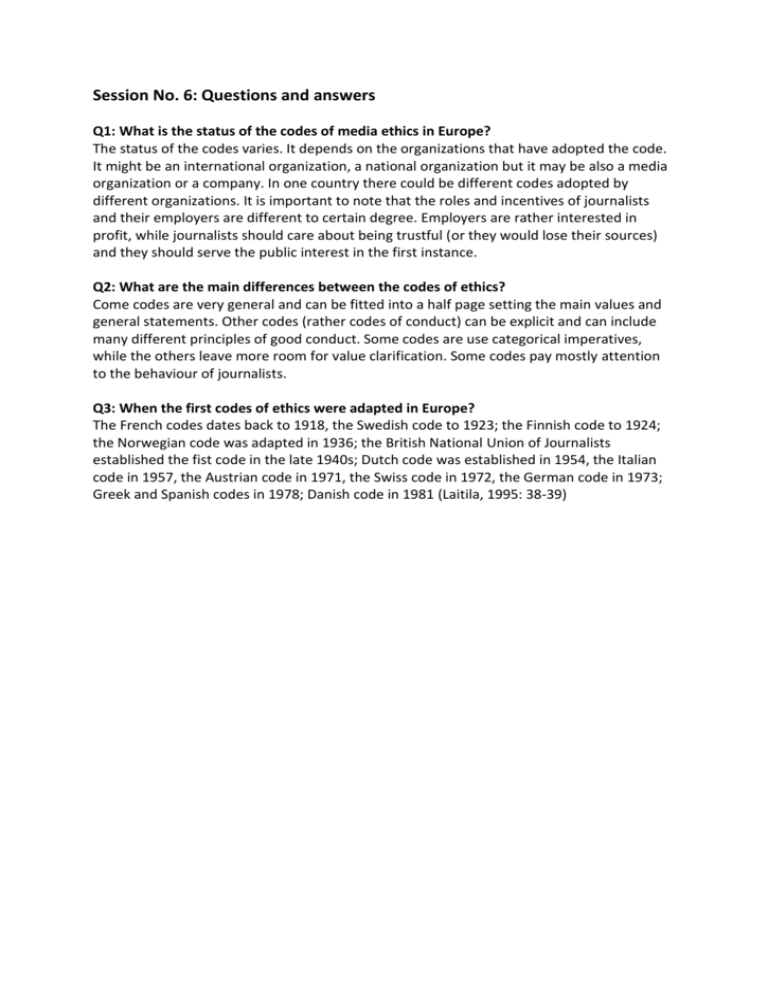
Session No. 6: Questions and answers Q1: What is the status of the codes of media ethics in Europe? The status of the codes varies. It depends on the organizations that have adopted the code. It might be an international organization, a national organization but it may be also a media organization or a company. In one country there could be different codes adopted by different organizations. It is important to note that the roles and incentives of journalists and their employers are different to certain degree. Employers are rather interested in profit, while journalists should care about being trustful (or they would lose their sources) and they should serve the public interest in the first instance. Q2: What are the main differences between the codes of ethics? Come codes are very general and can be fitted into a half page setting the main values and general statements. Other codes (rather codes of conduct) can be explicit and can include many different principles of good conduct. Some codes are use categorical imperatives, while the others leave more room for value clarification. Some codes pay mostly attention to the behaviour of journalists. Q3: When the first codes of ethics were adapted in Europe? The French codes dates back to 1918, the Swedish code to 1923; the Finnish code to 1924; the Norwegian code was adapted in 1936; the British National Union of Journalists established the fist code in the late 1940s; Dutch code was established in 1954, the Italian code in 1957, the Austrian code in 1971, the Swiss code in 1972, the German code in 1973; Greek and Spanish codes in 1978; Danish code in 1981 (Laitila, 1995: 38-39)
